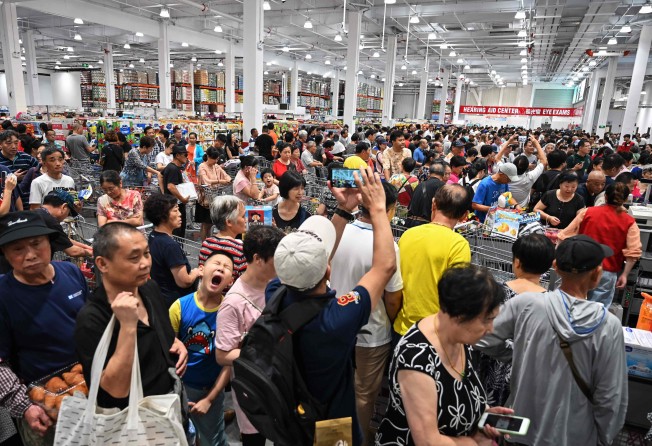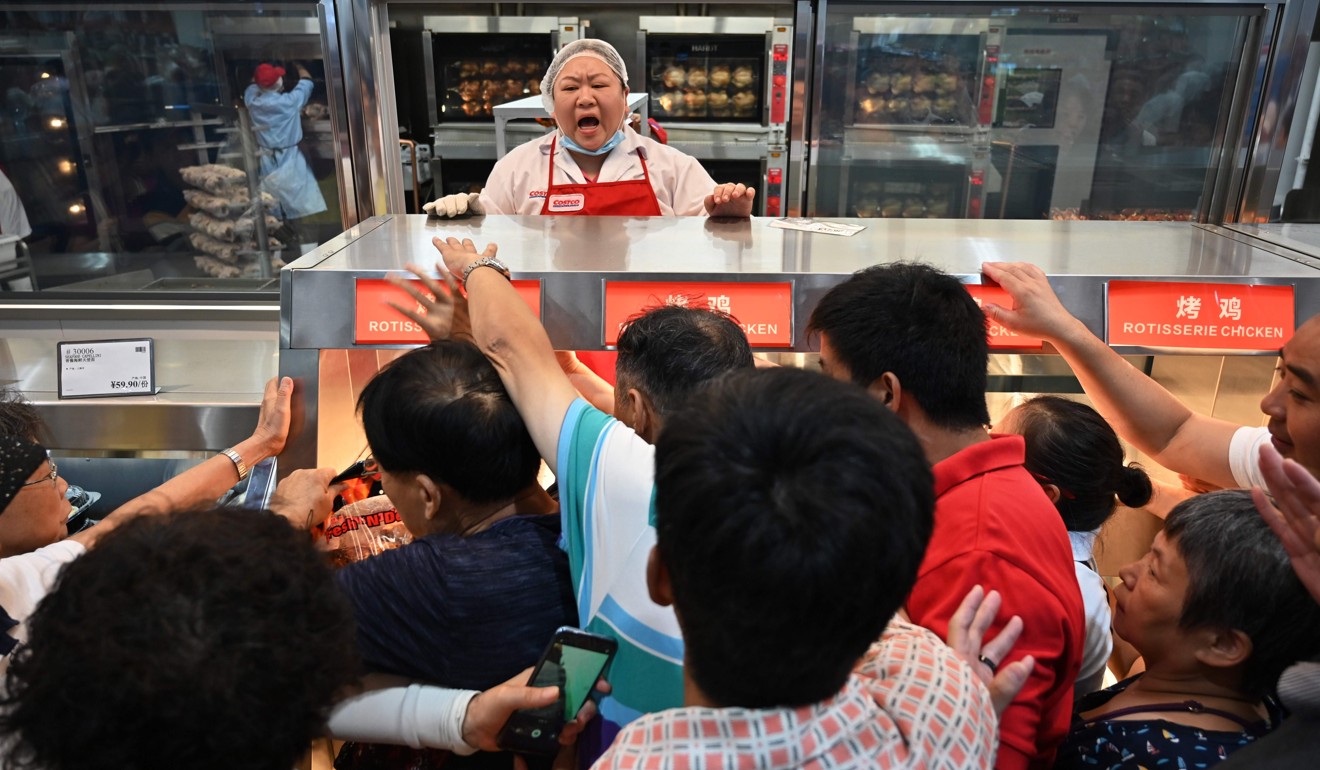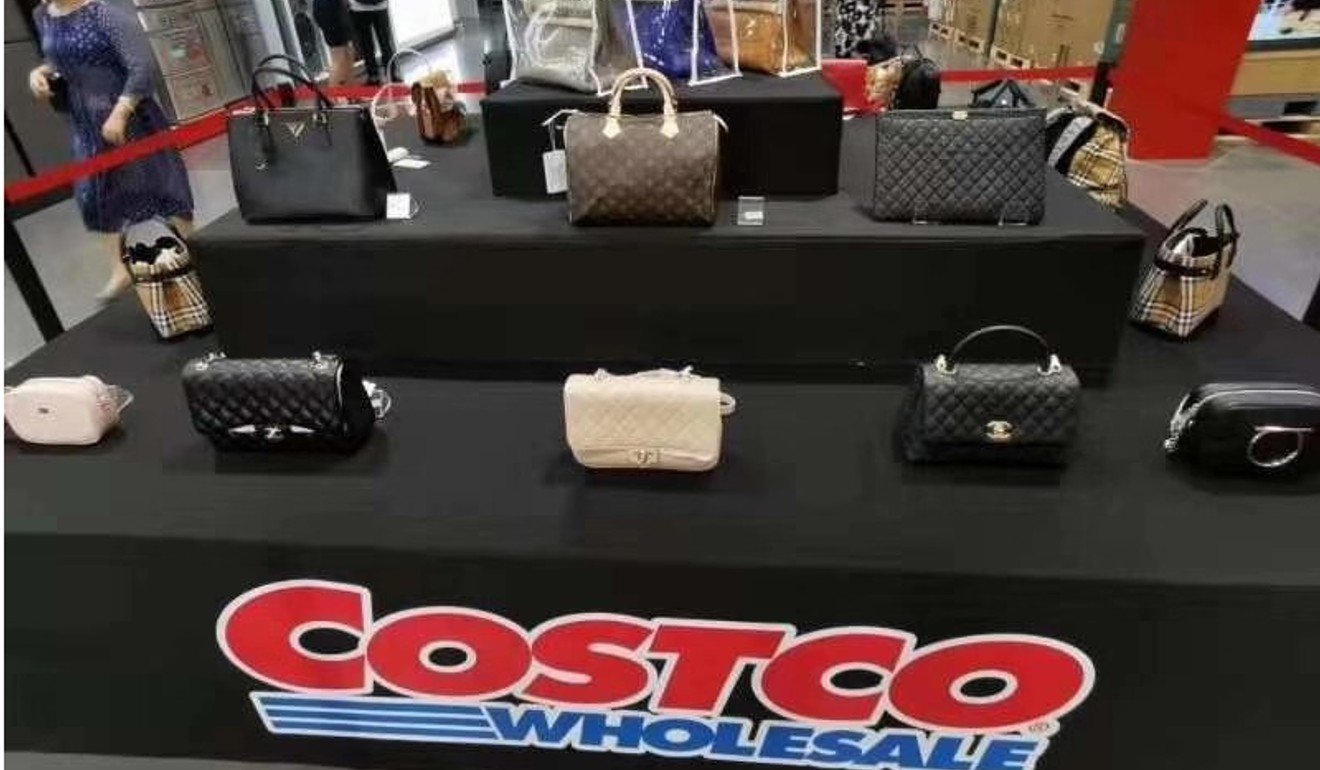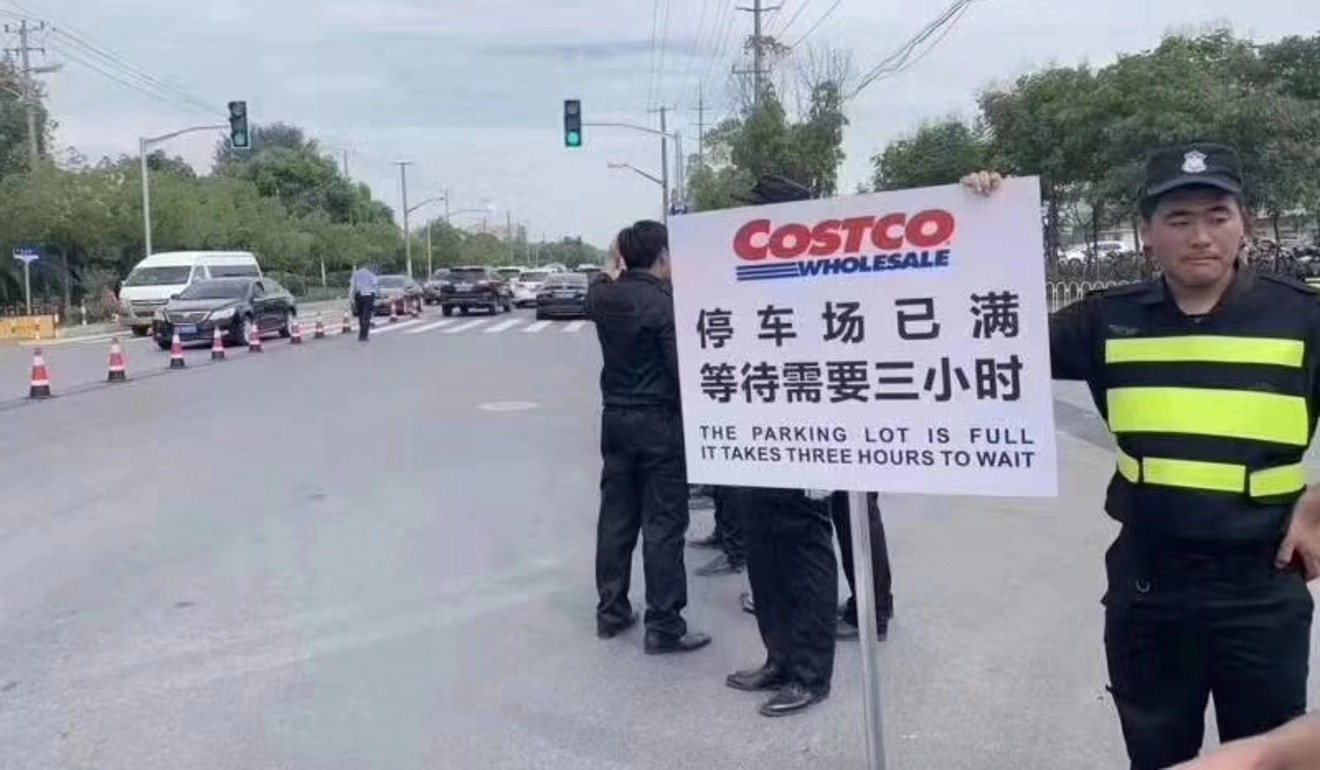Birkin bags, Moutai and a savvy social media push: how Costco scored with its Shanghai debut while other retailers failed
- Unable to cope with the mad rush of shoppers and safety concerns, bricks-and-mortar retailer Costco was forced to shut its Shanghai store early on its first day
- Costco’s social media push proved to be a huge success as it brought thousands of shoppers to the store’s Shanghai opening

US supermarket giant Costco was overwhelmed by the crowds that had descended on its newly opened store in Shanghai on Tuesday, forcing it to suspend operations because of safety concerns.
Thanks to a savvy social media push reminding consumers about the imminent store opening and large discounts, there was a frenzy for items ranging from designer handbags to liquor and shoes, in stark contrast to declining sales at rivals Carrefour and Walmart stores that are fast losing out to the onslaught of online shopping.
Shoppers were drawn to Costco’s warehouse style, membership-based store in the western suburban district of Minhang. And they were not disappointed. Kweichow Moutai liquor was priced at 1,498 yuan (US$209), about 400 yuan cheaper than elsewhere, while South Korean luxury brand MCM’s leather backpack was retailing at 4,399 yuan, about 1,100 yuan lower than on China’s e-commerce platform Tmall. Prada tote bags were selling for 13,999 yuan, according to photos shared by shoppers on social media.
Even Hermès’ popular Birkin bags were available at the wholesaler, although no price was available for the item that retails for several thousand US dollars each.
Jacky Chen, a Shanghai resident who visited the outlet, said local police ordered the suspension of business as it became increasingly difficult to control the crowds.
“It was chaotic as throngs of shoppers flocked to get some good bargains,” the 35-year-old white-collar clerk said. “There were bust-ups between anxious shoppers.”
By noon, pictures uploaded on to the Sina microblog showed Costco staff discouraging consumers from queuing up to get into the store. They held up signboards, saying at least three hours were needed to find a space in the store’s parking lot and another two hours for checkout.
The store was eventually closed at around 1.40pm.

Costco’s Shanghai outlet is set within a four-storey building. Consumers have to pay 299 yuan for a Costco membership card that grants them exclusive shopping privileges.
The ground floor is taken up by the store and the remaining three floors provide parking spaces for some 1,000 cars, according to local media ThePaper.cn.
“I was working when suddenly I received loads of pictures from friends saying that people were trying every possible way to squeeze into the store,” said Joyce Shi, who works for a local publishing house.
“This is a great example that shows how hard it will be for US companies to dump the China market,” said Xiao Lei, a financial columnist based in Beijing.
“The Chinese market still has great consumption power, particularly for high-end goods. It will be hard for US corporates to give up this … So President Trump may need to reconsider his call of asking US firms to come back to the motherland,” he said.

Last week Trump threatened to make American businesses move out of China under the 1977 International Emergency Economic Powers Act. “I have the absolute right to do that, but we’ll see how it goes,” Trump said after China announced retaliatory tariffs on US$75 billion worth of US goods.
“I think the membership fee is worth it because, for 299 yuan, we have opportunities to buy lots of value-for-money goods,” said Ben Zhou, who plans to visit the store in the coming days. “It is a good example of how good trade relationship between US and China can benefit the masses of consumers.”
Foreign supermarkets and hypermarkets boomed when they launched operations on the mainland in the 1990s.
But the rising penetration of e-commerce has led to a shift in consumer habits, with young urbanites increasingly using their mobile phones to place orders for items ranging from daily necessities to household appliances, cinema tickets and meals.
Figures from the National Bureau of Statistics backs the trend. Although retail sales of consumer goods in China grew by 8.4 per cent to 19.5 trillion yuan in the first half, online sales grew at a much faster pace of 17.8 per cent, accounting for nearly 25 per cent of the total.
Meanwhile, the latest data by market research firm Kantar Worldpanel showed that foreign retailers including Carrefour and Walmart continued to lose ground in the segment of fast-moving consumer goods in China.
The French retailing group Carrefour’s 210 hypermarkets in China suffered a 0.3 percentage point erosion in market share to 2.8 per cent in the first quarter from a year earlier. In the same period US retail giant Walmart had a 5.1 per cent market share, compared with 5.4 per cent a year earlier.

Walmart has enjoyed growth in its e-commerce business in China through partnerships with JD.com, JD Doajia and WeChat, according to a spokeswoman for the retailer.
“Walmart China is one of the first major retailers to use the WeChat Scan and Go mini program at scale,” she said. “We are encouraging our customers to shop with us across our physical and digital stores.”
In June, Carrefour, announced plans to sell an 80 per cent stake in its China operations to Suning, ceding control in a market that it had first entered in 1995.
Germany’s Metro is also said to be offloading a majority stake in its Chinese hypermarkets business.
Traditional retailers are also starting to utilise social media for marketing push.
Besides maintaining a huge presence on e-commerce platforms like Taobao, they are spending big on running active accounts in popular social media networks like WeChat and Douyin, or cooperating with key opinion leaders (KOLs) for marketing.
Recently Sina said that Samsung used its platform for a marketing event with great success. The South Korean invited 22 KOLs each with a fan base of more than 10 million, and achieved 3.7 billion topic views for the event.